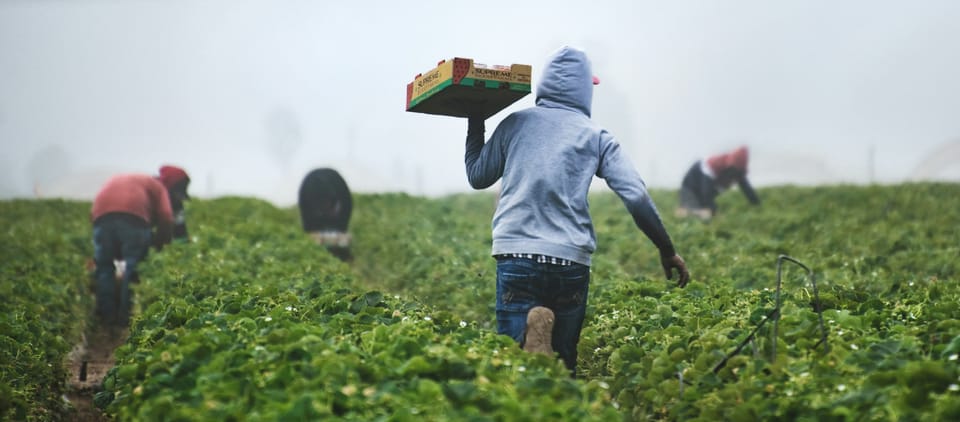How can we think about food at a time like this?

This is a slightly edited version of a newsletter article I wrote for Second Breath: A Center for Presence and Practice, in advance of a workshop Susan Gladin and I planned on sacred creation (with an emphasis on food). I wrote it in April, three months into the second Trump administration.
The world right now seems so unstable, so mean. I’m tired, overwhelmed, and enraged. How can I think reverently about food?
In Washington, DC, greed and selfishness seem to rule. Men in power (they are almost exclusively men) wield chainsaws as their preferred tool, clear-cutting everything in their path. Their main motivations seem to be lust for more money and power and hatred of the Other (though I trust that deep within them lie the love and light of God). Their actions are devastating people and the earth. My privilege shields me for now from their political project. And still, when I think about the human and planetary suffering that increases daily, I am overcome with sorrow. Deepening injustice enrages me.
As wildfires burn all around me, I turn from one to another, unfocused. I know that my sense of overwhelm is by design and that it doesn’t help anybody. I remind myself that courageous people are organizing and resisting everywhere, and when we work as a team, we each get to play to our strengths, directing our time and energy to the areas that are most important to us. My work has come to focus on environmental justice, climate action, and food systems. My main contribution is as a teacher.
It may seem like food and food systems are relatively low on the list of priorities right now. But the truth is that they intersect with all the pressing issues of our time, including racism, colonialism, economic inequality, gender justice, public health, political power, immigration, environmental protection, and climate change. Because food is such an intimate and embodied part of our lives, it is a good entry point into these other issues.
I produce little of my own food, so the food I eat connects me to other people and places. The dominant (industrial) food system I often depend upon is built on the exploitation of people, animals, and the earth. The more I learn about that system, the more motivated I am to seek alternative food systems built on land justice, human dignity, and care for our non-human kin.
Food connects us to God’s good creation. This became clearer to me several years ago when my wife and I encountered “Eating Together Faithfully,” a framework that helps Christians consider what it means “to eat with God’s intentions for all creation in mind.” The founder of the program, a former Methodist pastor named Grace Hackney, invited us to consider what it might mean “to eat for the glory of God” and “to think of [our] eating practices as a spiritual discipline.” I began to see a connection between eating and my faith that I hadn’t seen before.
Food justice exists when all people have the right and ability to produce, sell, and eat food that is fresh, nutritious, sufficient, and culturally appropriate. It requires dismantling systems of oppression. And it is embedded in the larger goal of food sovereignty: a community’s right to control its own food system and to produce food through ecologically sustainable methods. For people of faith concerned about social justice, food matters.
I yearn for a world in which we love all creation. We recognize the sacredness of all human beings, all plants and animals, and the earth itself, and that recognition leads us to a posture of reverence. As Wendell Berry writes:
To live, we must daily break the body and shed the blood of Creation. When we do this knowingly, lovingly, skillfully, reverently, it is a sacrament. When we do it ignorantly, greedily, clumsily, destructively, it is a desecration. In such desecration we condemn ourselves to spiritual and moral loneliness, and others to want.
May we practice turning our relationship to food into a sacrament. In doing so we will combat selfishness, greed, hatred, and injustice with love, reverence, and care.
References
Grace Hackney, “Invitation to the Conversation” and “Conversation 1” from Eating Together Faithfully: A Framework for Conversation. Life Around the Table.
Wendell Berry, “The Gift of Good Land.” In The Commonplace: The Agrarian Essays of Wendell Berry, ed. Norman Wirzba (Berkeley, Calif.: Counterpoint, 2002), p. 304.